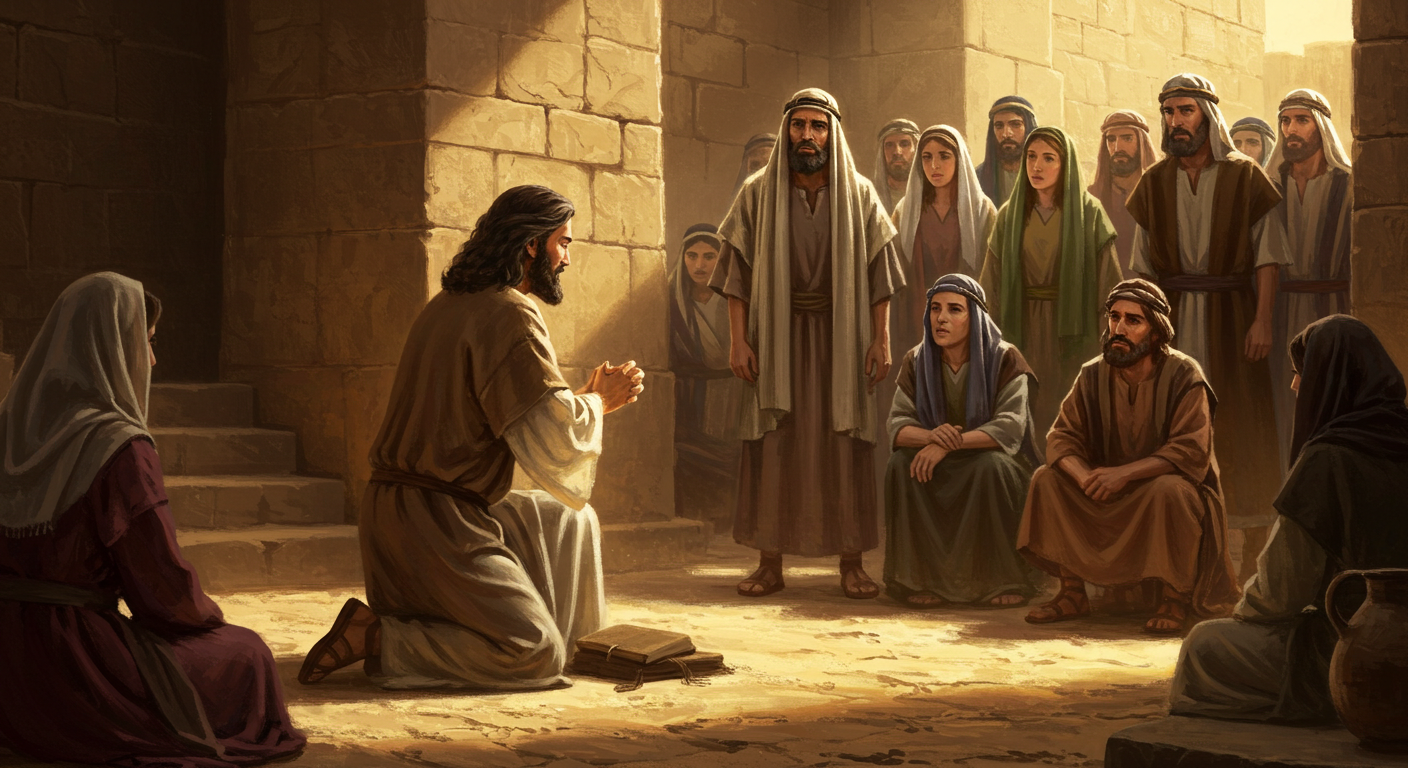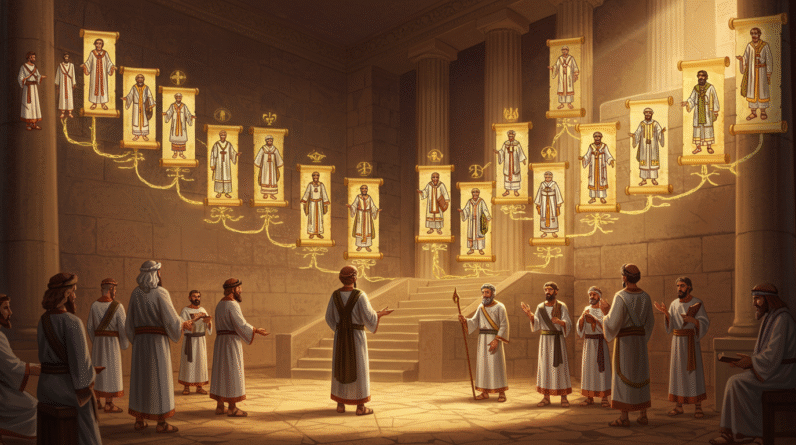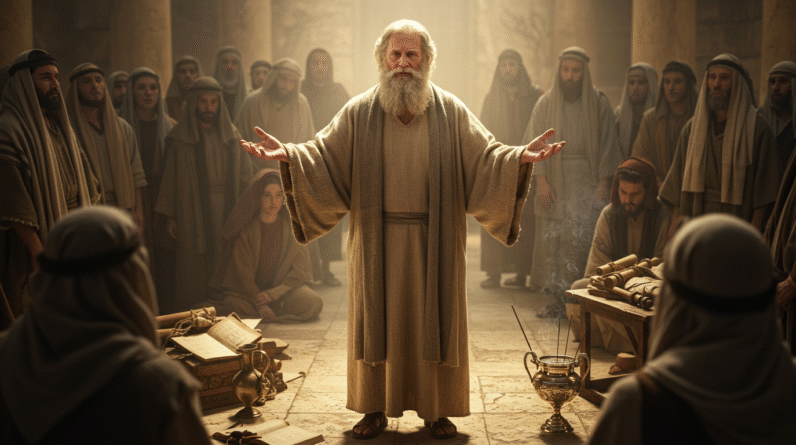Lessons From Ezra’s Leadership: Courage, Conviction, And Prayer
In the tapestry of biblical leaders, Ezra stands out as a luminous thread, both for his direct impact and the enduring lessons his life offers. If you’re interested in leadership and spirituality, there’s much to glean from Ezra’s blend of characteristics. His life was marked by three pivotal attributes—courage, conviction, and a deep commitment to prayer. Though centuries have passed since Ezra walked the earth, the principles he exemplified remain relevant and inspiring. So, let’s wander through the corridor of time and unpack the lessons from Ezra that can guide us today.
Understanding Ezra’s Context
Before diving into the traits that defined Ezra’s leadership, it’s vital to grasp the backdrop against which he rose to prominence. Ezra emerged during a pivotal period in Jewish history, a time of return and reconstruction. The Babylonian exile had displaced the Israelites, separating them from their homeland. When Ezra appears on the scene, some Israelites had started making their way back to Jerusalem, but the city and its institutions needed immense rebuilding—not just physically, but spiritually as well.
Ezra was a priest and a scribe, deeply versed in the Law of Moses. He did not merely know the scriptures; he lived them. His journey from Babylon to Jerusalem wasn’t just a physical trek but a mission filled with purpose. Ezra’s task was greater than rebuilding; it was about restoration, reformation, and revival of a nation’s soul. This historical backdrop is crucial in understanding the courage, conviction, and reliance on prayer that Ezra exhibited.
Courage to Lead
Leadership invariably demands courage, and the lessons from Ezra in this regard are profound. When you think about courage in leadership, you may envision bold speeches or decisive actions. For Ezra, courage took on a transformative role, as he faced not just one monumental task, but an entire spectrum of challenges.
Facing a Daunting Mission
Can you imagine the enormity of the task at hand? Returning from exile to a city in ruins and tasked with rebuilding its spiritual foundations required remarkable tenacity. It wasn’t just about courage in doing, but the courage to envision—a Jerusalem restored to its spiritual glory. Ezra carried this vision with unwavering determination.
Ezra’s courage didn’t manifest in isolation; it was bolstered by a clear sense of purpose and direction. Courage, for Ezra, was about moving forward despite uncertainty, as he took on the mission to teach God’s laws and renew a fragmented identity. Ezra 7:10 captures this beautifully, stating that Ezra had devoted himself to the study and observance of the Law of the Lord.
Leading through Challenges
Courage also meant leading in the face of criticism and hostility. Ezra stepped into a community that was not a blank slate but one fraught with tension, sin, and resistance to change. Imagine the psychological and emotional fortitude required to press on amidst disapproval, to advocate for something larger than personal acceptance—a relationship with God rooted in sincerity and devotion.
Adversity demanded that Ezra rely on an inner reservoir of courage continuously replenished through his faith. This courage allowed him to guide others, confront wrongdoing, and remain steadfast in his leadership, firmly grounded in spiritual principles.
Boldness to Confront Sin
Another remarkable aspect of the lessons from Ezra is his boldness to confront sin, a trait that requires extraordinary conviction and moral clarity. It’s one thing to recognize wrongdoings within a society or community, but another to stand up and address them directly.
Addressing the Community’s Spiritual Failings
Ezra didn’t shy away from addressing the sinful practices that had taken root during and after the exile. This involved the delicate and, often, uncomfortable process of acknowledging collective shortcomings and prompting change—actions that required immense boldness. Leadership, as exemplified by Ezra, involves heading into the storm to enact necessary change, rather than gazing passively from the sidelines.
Upon discovering the widespread intermarriage between the Israelites and surrounding communities, which went against God’s commandments, Ezra responded with prayer-filled lamentation and public confession. In Ezra 9:3-4, we’re told of his reaction—ripping his clothes and pulling hair from his head and beard as he sat appalled. Such acts were emblematic of his deep grief, but also his readiness to take upon himself the burden of the community’s failings.
Inspiring Collective Repentance
Ezra possessed the boldness to rally a nation toward repentance, calling on his people to return to their sacred covenant with God. In addressing their failings, he did not alienate but united them under the shared goal of revival and restoration. His leadership was not merely corrective but redemptive, aiming to mend what was broken and restore a collective sense of righteousness.
Confronting sin isn’t about judgment or exclusion but about inspiring collective growth and transformation. Ezra’s model teaches us that true leadership sometimes involves making difficult decisions to confront entrenched patterns and guiding people back toward communal values rooted in integrity and faith.

Dependence on Prayer
Perhaps one of the most enduring lessons from Ezra is his unshakeable dependence on prayer. Through his unwavering commitment to prayer, he demonstrated an authentic reliance on divine guidance, acknowledging that true wisdom and strength came from the Lord.
Prayer as a Source of Strength
Ezra understood that prayer was foundational—not supplementary—to leadership. It was his primary source of strength and direction, a practice seamlessly woven into the fabric of his daily responsibilities. In today’s fast-paced world, it’s tempting to view prayer as a last resort, a practice for moments of desperation or crisis. Yet, Ezra challenges you to reconsider prayer as the cornerstone of leadership, an ongoing dialogue with God that fuels courage, conviction, and clarity.
When Ezra fasted and prayed for a safe journey from Babylon to Jerusalem, it wasn’t mere formality. His petitions hinged on the actualization of God’s promises and protection. Ezra 8:21-23 beautifully underscores this point, as Ezra proclaims a fast and prays for a safe passage, affirming faith in God’s power and provision.
Continuous Communication with God
Ezra’s leadership journey was constantly filtered through moments of prayer—whether seeking wisdom, interceding for his people, or expressing gratitude. This continuous communication set a powerful precedent, showing that prayer wasn’t simply reactive, but a proactive engagement with the divine.
Through Ezra, you’re reminded that prayer isn’t just about asking for things but acknowledging a deeper dependency, recommitting to a path aligned with divine purpose. This fierce commitment to prayer sustains a leadership style that remains resilient amid adversity, grounded in divine partnership, and focused on true spiritual renewal.
Lessons for Today’s Leaders
The lessons from Ezra extend far beyond their historical context, offering insightful guidance for today’s leaders. Whether you’re guiding a team, a community, or simply navigating personal growth, Ezra’s character traits provide a template for reflective and effective leadership.
Embrace Courageous Vision
Ezra’s courage was not just about action but about vision and purpose. As a leader, it’s essential to embrace a visionary courage that allows you to see beyond challenges and to work toward a transformative impact. Like Ezra, insist on a vision that prioritizes spiritual growth and community renewal, even when the path forward is fraught with uncertainty.
Champion Conviction-driven Change
Boldness isn’t about confrontation for its own sake, but about striving toward righteous change. Consider where you can mirror Ezra’s zeal for honesty and justice. Challenge wrongful practices and inspire transformation as a means of shaping a community that honors virtues of integrity and faithfulness.
Prioritize Prayer and Spiritual Dependence
Lastly, Ezra’s unwavering commitment to prayer serves as a reminder to prioritize spiritual alignment in your leadership journey. Let it inform your decisions, fuel your resilience, and guide your leadership vision. Recognize that true strength often begins in a place of humility, where you seek wisdom from a source greater than yourself.
Conclusion
Ezra, with his vivid example of courage, conviction, and prayerful dedication, provides an exceptional blueprint for leadership marked by humility and spiritual commitment. His life story echoes timeless lessons that challenge us to lead with integrity, embrace the uncomfortable for meaningful change, and maintain a steadfast dependence on divine guidance.
As you reflect on the lessons from Ezra, consider how you can integrate these qualities into your leadership style and daily life. Explore how embodying courage, fostering boldness for positive transformation, and relying on prayer can reshape not only individual lives but entire communities.
Explore More
For further reading and encouragement, check out these posts:
👉 7 Bible Verses About Faith in Hard Times
👉 Job’s Faith: What We Can Learn From His Trials
👉 How To Trust God When Everything Falls Apart
👉 Why God Allows Suffering – A Biblical Perspective
👉 Faith Over Fear: How To Stand Strong In Uncertain Seasons
👉 How To Encourage Someone Struggling With Their Faith
👉 5 Prayers for Strength When You’re Feeling Weak

📘 Jesus and the Woman Caught in Adultery – Grace and Mercy Over Judgement
A powerful retelling of John 8:1-11. This book brings to life the depth of forgiveness, mercy, and God’s unwavering love.
👉 Check it now on Amazon
As a ClickBank Affiliate, I earn from qualifying purchases.
Acknowledgment: All Bible verses referenced in this article were accessed via Bible Gateway (or Bible Hub).
“Want to explore more? Check out our latest post on Why Jesus? and discover the life-changing truth of the Gospel!”








